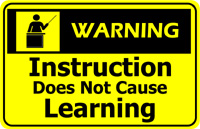(Addendum added Nov 6, 2011)
I keep getting myself in trouble. Let me be the first to admit it. And this time, it’s because I’m proud of the work I did, and I hate to see other people cheapen the meaning of it. In this case, we’re talking about the word “Certified”.
 When you drive your car into a garage, you see signs for an ASE Mechanic. If you want to climb into the cockpit of a jet airplane, you’ve got to talk to a guy (or gal) who’s holding a CFI Rating. And, if you want to get into the server room at work, you’re gonna need a little something called an MCSE (Microsoft Certified Systems Engineer) Certificate. (Full disclosure, I spent a good part of my career writing big complicated courses to teach people to get that last one — which hundreds of thousands, if not millions of people — now hold around the world.)
When you drive your car into a garage, you see signs for an ASE Mechanic. If you want to climb into the cockpit of a jet airplane, you’ve got to talk to a guy (or gal) who’s holding a CFI Rating. And, if you want to get into the server room at work, you’re gonna need a little something called an MCSE (Microsoft Certified Systems Engineer) Certificate. (Full disclosure, I spent a good part of my career writing big complicated courses to teach people to get that last one — which hundreds of thousands, if not millions of people — now hold around the world.)
My point is, when you bill someone as being “Certified” in something, you’re saying to the public at large that you’re in some way reassuring them that this person can actually perform the tasks expected of them in a competent manner.
The ASE Mechanic can diagnose the problem with your car, order the parts, install them and then test your car and return it to you without giving you a dangerous vehicle.
The CFI Flight Instructor can teach your pilot how to fly an airplane in such a manner that you will be safe riding with them, and that if a problem arises they will professionally and quickly resolve it and land the airplane without you ending up a small grease spot on the pavement.
The Microsoft Certified Systems Engineer will be able to install, configure and diagnose your computer servers and systems so that your data is safe, your users are happy, and that that guy from Nigeria doesn’t get into your bank account.
Now, of course, there ARE organizations that provide “certification” of crystal ball gazers, balloon animal makers, and those who make sculptures out of dryer lint. Anyone can “certify” someone in a skill — coaching, finger-snapping, apple carving — and that’s their right. While I think it’s amusing, I don’t really have a big problem with them.
But a year or two ago, a Large Learning Organization (Let’s call it the “Amazing Society for Trivial Development” decided that the world needed them to “provide a way for workplace learning and performance professionals to prove their value to employers and to be confident about their knowledge of the field.”
Great! Sounds just like my definition above — reassuring, performance, competent…
Well, hold on there, Hoss. The bar’s not all that high. Here’s what you need:
1. Three years in a “related” field.
2. “Pass” a multiple choice test (which apparently has not been validated)
3. Submit a “sample” of your work (PPT deck? Drawing of you in a classroom?)
Oh — one other little thing. A check for $1,000 dollars. For a machine-scored test and to have a “blue-ribbon panel” look at your course plan?
Just for comparison, a Microsoft Certification test (for a single cert) right now costs around $200. And having it will immediately boost your income about 25% or more in most markets. Because the people who pass this test have to pretty much take a week of classes and then study really, really hard before they can pass.
If you got all five certs, you’d double your income. Those tests would be about $1000 out of your pocket. Probably a good deal.
So let’s get back to the Large Learning Organization. Do they have any documentation that their certification maps directly to more income? Well, they do claim that the Fortune 500 “prefer their candidates” but they don’t give any hard data. If there were actual stats, I bet they’d quote them.
But come on — who in their right mind would say these people are competent at what we do? E-learning? Instructor led? Webcasts? Curriculum Design? Needs analysis? Assessment? Social Media? Coaching? Psychometrics? Data Analysis?
But (from their own data) the LLO has now administered their test to 3,605 people and charged users about $1000 each. I’m not a math whiz, but that comes out to Three Million, Six Hundred and Five Thousand Dollars! Now they did have mimeograph costs for the multiple-choice tests, and they had to print up some nice blue ribbons for the panel, but other than that — pure profit. And people say Bernie Madoff was smart!
(Full Disclosure: They will give you a $200 discount on the test if you join the org or are a member. But that money just goes in another pocket, so I’m not discounting it.)
This causes an itch under my saddle because they’re supposed to be a Professional Learning Organization, and they should know better. If it was a bunch of Balloon Animal Professionals, I’d cut them some slack and say “Well, what do they know about training and certification?” But these people CLAIM to be the best and brightest. In fact, I bet some of them even HAVE this certification. (Interesting side note would be to see if EVERYONE paid full price, or if the insiders got it discounted or for free. I know what I’d be betting — how about you?)
So there you have it. Call me cranky, call me snarky, or call me somebody that’s proud of my profession. Proud of my skills. Proud of the people that I work with every day who really provide Training and Development at a high level of quality.
And embarrassed to be associated with a money-machine that grinds out pretty certificates.
Addendum: Several people have written me personally, asking why I hate people who have certifications from the Large Learning Organization, or think that those people don’t have skills in learning. PERISH THE THOUGHT! I’d bet that a large number of people who coughed up the $10000 fee for this overpriced and poorly-designed piece of irrelevant documentation are likely highly skilled learning professionals. I know several of them personally, and would recommend them highly, depending on what it is you wanted them to do.
The point is that this Four Letter Acronym really has nothing to do with whether they are skilled or not — it merely proves they can write a check and answer some multiple-guess questions. It’s not a certification for a potential client that they can actually provide the services that the client needs, or that they have the skills that map to the project at hand.
Were I at the beginning of my career, with no other evidence of my skill (like advanced degrees or client referrals) I’d probably hold my nose and write the check. But I’d have to take a shower every time I put the acronym after my name.


{ 2 comments… read them below or add one }
Well put. I would add that many times certifications are thinly veiled attempts to raise barriers to entry to a field. I’m not saying that is true about all, but some seem to just be hurdles and income generators.
I’m not saying there would not be value in a valid certification process, but it does not appear this is it.
Bingo.